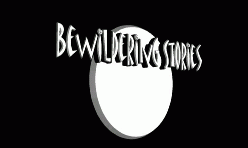The Dynamic Text
by Don Webb
These are the three questions mentioned in the discussion of Stephen Heister’s response to Challenge 97.
I. Who are we on the Net?
In the early days of the Net, some speculated that impersonation would be entirely too easy and that pathological personalities could do real harm. To a certain extent, the warnings were correct: there are a lot of bad people out there, and we do occasionally read in the papers of someone caught for exploiting children by misrepresenting himself to them in such things as “chat rooms.”
However, I think the danger has proved to be less than what was feared, for two reasons:
- Everyone has weaknesses, but most people are mostly decent. True sociopaths — people without a conscience — are, fortunately, rather rare, although they can become very influential and do a lot of harm. Finally, while street criminals are common, Net crime is highly specialized.
- Everyone has a “voice” in writing. It is very hard to impersonate another writer successfully without copying. Pastiche is an advanced exercise in creative writing, and it’s not easy: extensive forgery is exhausting. It’s hard enough to maintain a false persona in synchronous communication, such as a chat room; in asynchronous communication — the epistolary mode — it’s extremely difficult. It’s a rare individual indeed who is constantly “on stage” in a borrowed personality all the time. A writer’s “voice” will become discernible all the sooner the more authentic the writer is.
II. What is the relationship between the author and the text?
Speaking as someone who’s written a thing or two, I can say that it’s not always clear to the author. Sometimes writing is hard, slogging work; sometimes I’ve felt like I was taking dictation. Which, if either, is the “real me”?
But does it matter? What do the bylines and biographical sketches have to do with the story, poem or article? At the very least they give a name to a text. Several of our authors conceal in one way or another the names they normally use; that’s a time-honored tradition, but does it really change anything? A writer can say his real name is a pen name; would most of us know the difference? And why should we care? Matthew and Mark are arbitrary names given to a multiplicity of authors. Who was Homer? Sappho? Or the mysterious Turoldus, who wrote his signature into the last verse of the Song of Roland ?
III. What is a text?
A few of our authors have made changes in the stories they’ve sent us, changes in detail but not really in substance. The Internet reveals anew what print tends to hide and what medieval scholars have always known: a text is dynamic; it passes from the author to the medium — oral, ink or electronic — and thence to the reader.
And then what happens? As the celebrated Canadian author Thomas King says, all we have is stories. That, I think, is what St. Augustine realized in his auditory vision: Tolle, lege — “Take, read.” And, for good or ill, we live and die by the stories we take to heart. Augustine knew that, too: Dilige, et quod vis, fac — “Love, and do as you will.” As long as we do that, the details will vary, to our unending surprise and delight; but the substance will remain.
Copyright © 2004 by Don Webb

